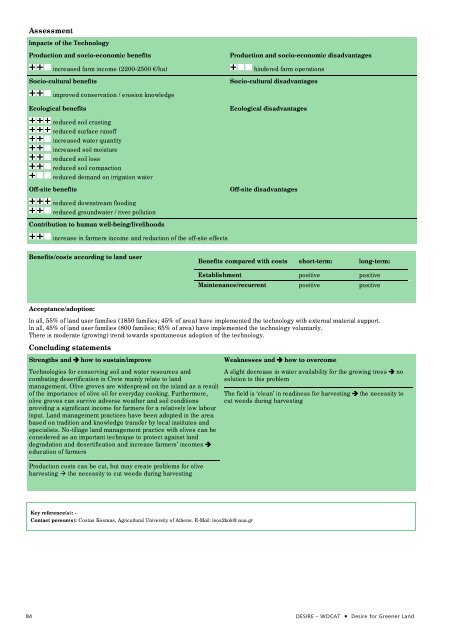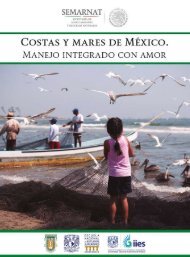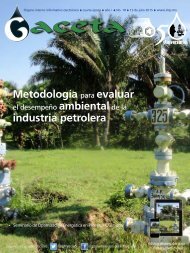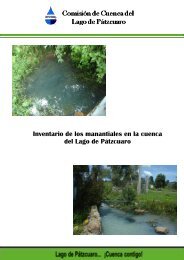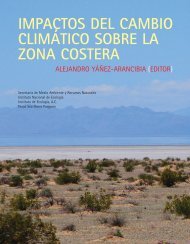Desire for Greener Land
Desire for Greener Land
Desire for Greener Land
Create successful ePaper yourself
Turn your PDF publications into a flip-book with our unique Google optimized e-Paper software.
Assessment<br />
Impacts of the Technology<br />
Production and socio-economic benefits Production and socio-economic disadvantages<br />
increased farm income (2200-2500 €/ha) hindered farm operations<br />
Socio-cultural benefits Socio-cultural disadvantages<br />
improved conservation / erosion knowledge<br />
Ecological benefits Ecological disadvantages<br />
reduced soil crusting<br />
reduced surface runoff<br />
increased water quantity<br />
increased soil moisture<br />
reduced soil loss<br />
reduced soil compaction<br />
reduced demand on irrigation water<br />
Off-site benefits Off-site disadvantages<br />
reduced downstream flooding<br />
reduced groundwater / river pollution<br />
Contribution to human well-being/livelihoods<br />
increase in farmers income and reduction of the off-site effects<br />
Benefits/costs according to land user<br />
Acceptance/adoption:<br />
Benefits compared with costs short-term: long-term:<br />
Establishment positive positive<br />
Maintenance/recurrent positive positive<br />
In all, 55% of land user families (1850 families; 45% of area) have implemented the technology with external material support.<br />
In all, 45% of land user families (800 families; 65% of area) have implemented the technology voluntarily.<br />
There is moderate (growing) trend towards spontaneous adoption of the technology.<br />
Concluding statements<br />
Strengths and how to sustain/improve Weaknesses and how to overcome<br />
Technologies <strong>for</strong> conserving soil and water resources and<br />
combating desertification in Crete mainly relate to land<br />
management. Olive groves are widespread on the island as a result<br />
of the importance of olive oil <strong>for</strong> everyday cooking. Furthermore,<br />
olive groves can survive adverse weather and soil conditions<br />
providing a significant income <strong>for</strong> farmers <strong>for</strong> a relatively low labour<br />
input. <strong>Land</strong> management practices have been adopted in the area<br />
based on tradition and knowledge transfer by local institutes and<br />
specialists. No-tillage land management practice with olives can be<br />
considered as an important technique to protect against land<br />
degradation and desertification and increase farmers’ incomes <br />
education of farmers<br />
Production costs can be cut, but may create problems <strong>for</strong> olive<br />
harvesting the necessity to cut weeds during harvesting<br />
Key reference(s): -<br />
Contact person(s): Costas Kosmas, Agricultural University of Athens. E-Mail: Isos2kok@aua.gr<br />
A slight decrease in water availability <strong>for</strong> the growing trees no<br />
solution to this problem<br />
The field is ‘clean’ in readiness <strong>for</strong> harvesting the necessity to<br />
cut weeds during harvesting<br />
84 DESIRE – WOCAT <strong>Desire</strong> <strong>for</strong> <strong>Greener</strong> <strong>Land</strong>


